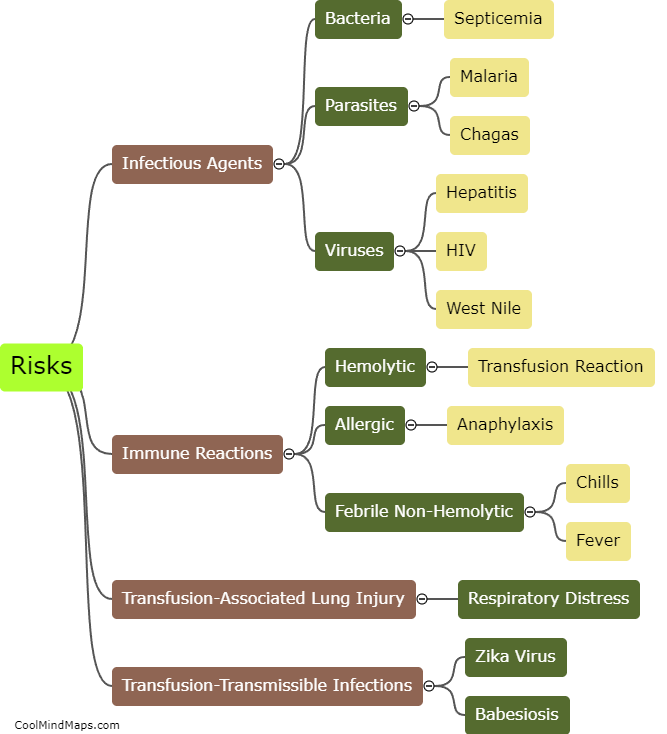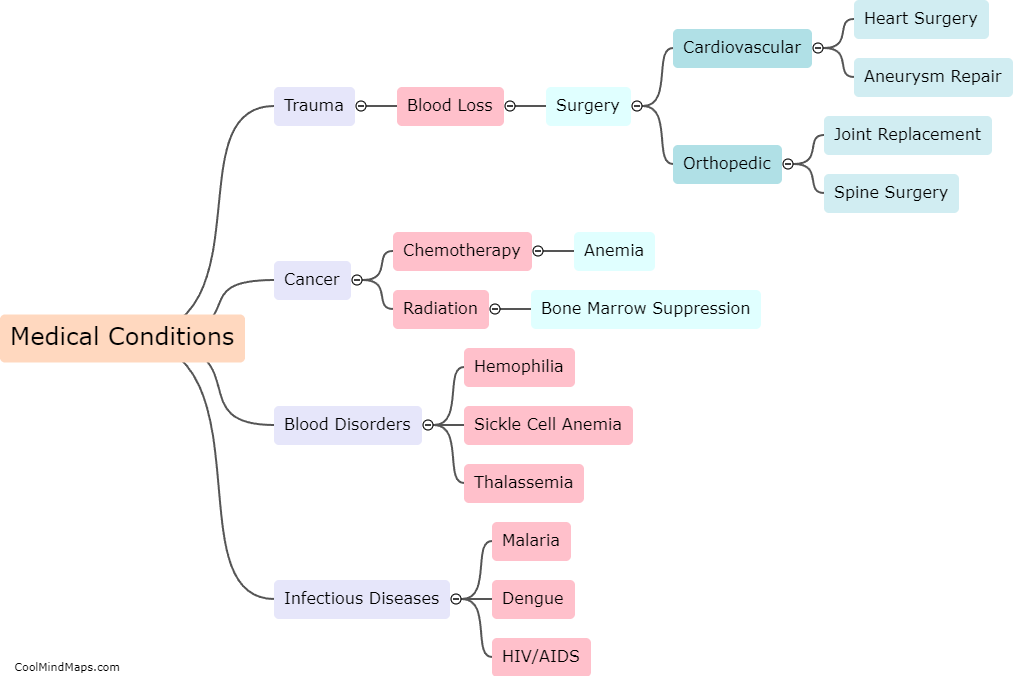What are the risks associated with blood transfusion?
Blood transfusion carries the inherent risk of complications, which can range from mild to severe and potentially deadly. Some possible risks of blood transfusion include allergic reactions, fevers, infections, transfusion reactions, and hemolytic reactions. Transfusion reactions can happen when the recipient's immune system responds negatively to the transfused blood, causing symptoms such as fever, hives, or difficulty breathing. Hemolytic reactions occur when red blood cells break down rapidly, causing kidney damage and potentially leading to death. Other risks may include transmission of viruses and other pathogens, although modern screening and testing have made this less common. The likelihood and severity of these risks can depend on numerous factors, including blood type, the donor's health status, and the recipient's overall health. As with any medical procedure, the benefits of a blood transfusion should be weighed against the potential risks.

This mind map was published on 25 June 2023 and has been viewed 102 times.











